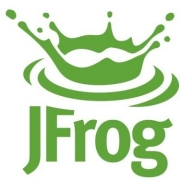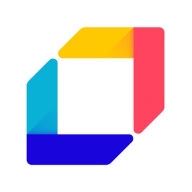

Find out in this report how the two Container Security solutions compare in terms of features, pricing, service and support, easy of deployment, and ROI.
| Product | Market Share (%) |
|---|---|
| Trivy | 6.0% |
| JFrog Xray | 4.0% |
| Other | 90.0% |


| Company Size | Count |
|---|---|
| Small Business | 1 |
| Midsize Enterprise | 3 |
| Large Enterprise | 6 |
| Company Size | Count |
|---|---|
| Small Business | 3 |
| Midsize Enterprise | 1 |
| Large Enterprise | 9 |
JFrog is on a mission to enable continuous updates through Liquid Software, empowering developers to code high-quality applications that securely flow to end-users with zero downtime. The world’s top brands such as Amazon, Facebook, Google, Netflix, Uber, VMware, and Spotify are among the 4500 companies that already depend on JFrog to manage binaries for their mission-critical applications. JFrog is a privately-held, global company, and is a proud sponsor of the Cloud Native Computing Foundation [CNCF].
If you are a team player and you care and you play to WIN, we have just the job you're looking for.
As we say at JFrog: "Once You Leap Forward You Won't Go Back!"
Trivy offers comprehensive scanning for files, images, repositories, and infrastructure. It's open-source and integrates with CI/CD for vulnerability detection and security enhancement.
Trivy scans vulnerabilities in code, Docker images, containers, and infrastructure. It integrates seamlessly into DevOps pipelines, ensuring security in dependency management and open source vulnerabilities. This tool, lightweight and open-source, provides user-friendly reports and supports continuous vulnerability database updates, fostering ease of use across operating systems. Users benefit from its scanning capabilities, covering Kubernetes, AWS credentials, and GCP service accounts, effectively identifying vulnerabilities and misconfigurations.
What are Trivy's key features?In industries like technology and finance, Trivy is used extensively to secure applications, perform compliance checks, and offer security metrics visualization. It addresses microservices, container systems, and Kubernetes clusters security requirements, supporting DevOps teams and enhancing codebase analysis precision.
We monitor all Container Security reviews to prevent fraudulent reviews and keep review quality high. We do not post reviews by company employees or direct competitors. We validate each review for authenticity via cross-reference with LinkedIn, and personal follow-up with the reviewer when necessary.